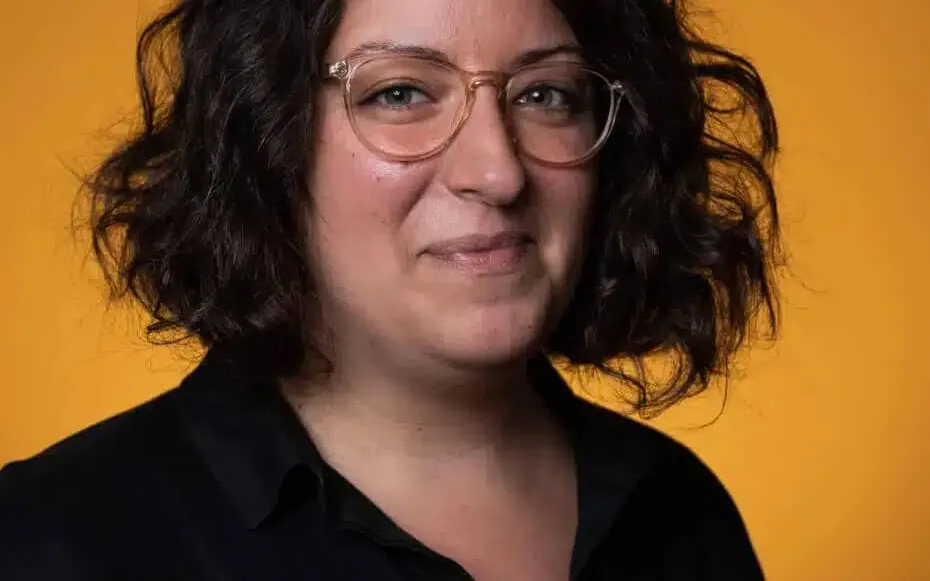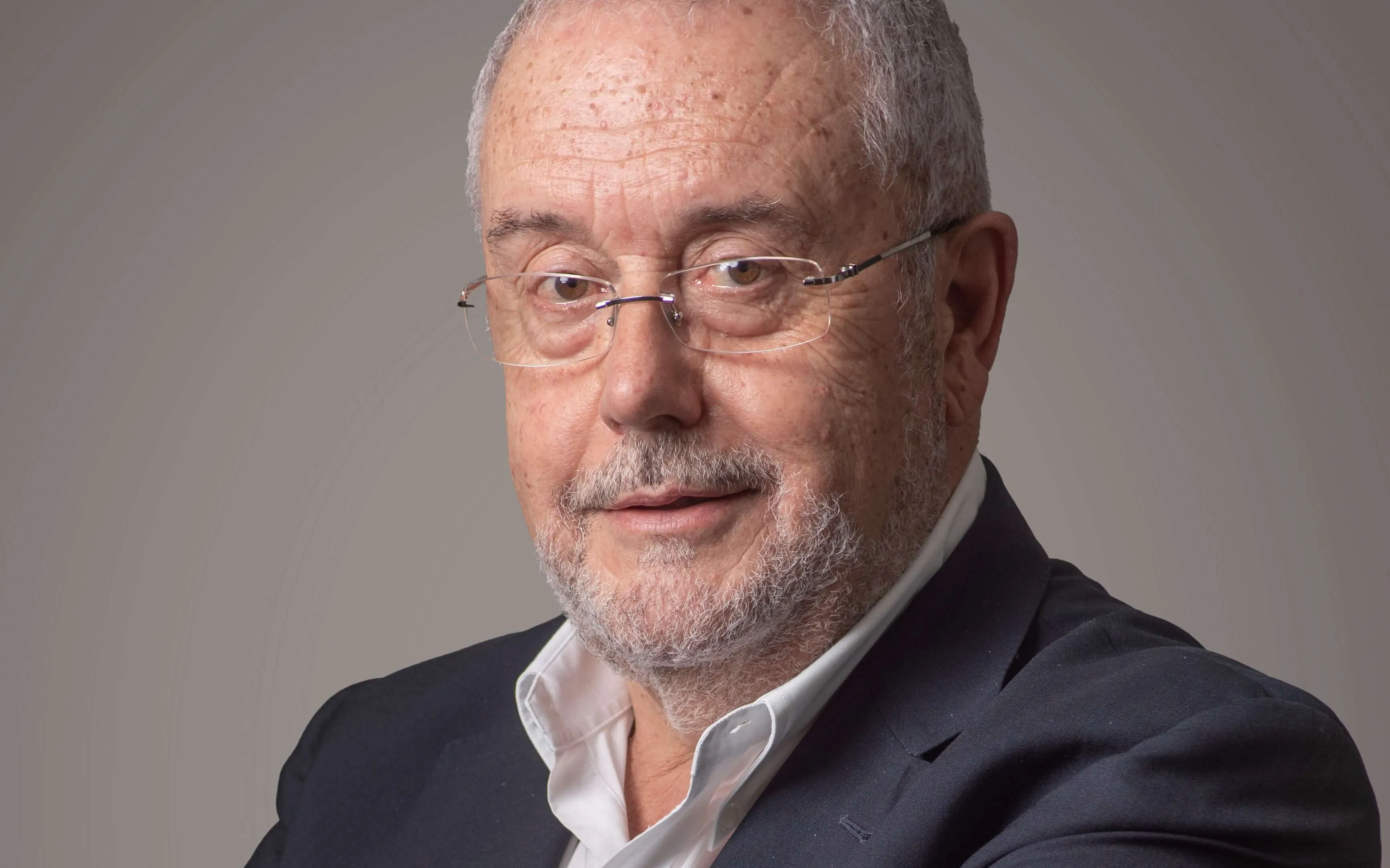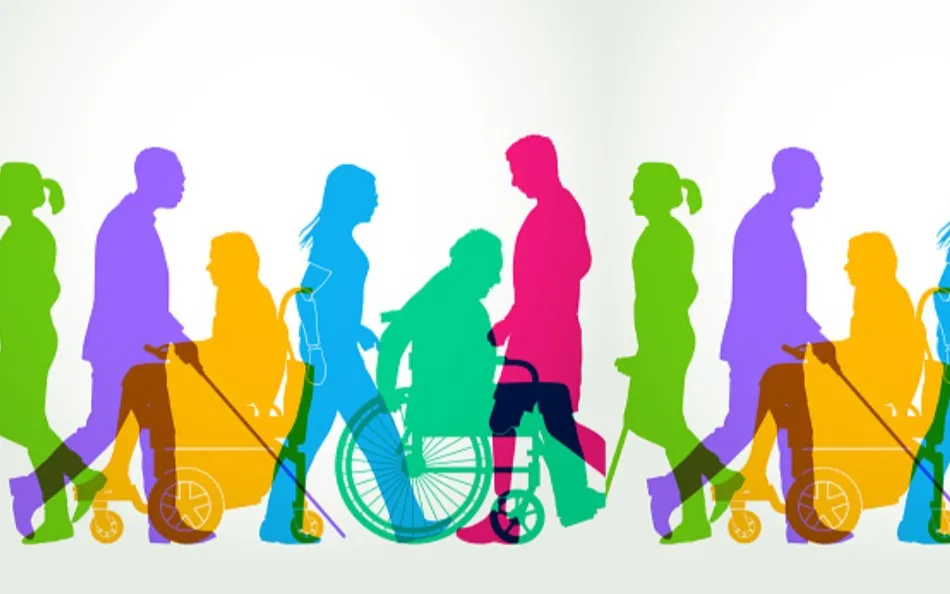Sarah Loriato: "We believe in the importance of adopting a rights-based and life-course approach to ageing and promoting cooperation between generations to combat ageism"
Sarah Loriato, AGE Policy Officer on Employment and Participation and EP Liaison Officer, explains their work from AGE Platform Europe to "combat ageism and promote human rights throughout life in all areas of society."
What was the motivation behind founding AGE Platform Europe, and how has its mission evolved over the years?
In 2000, three organisations of older people – Eurolink Age from the UK, EPSO from the Netherlands, and FIAPA from France – decided to create AGE Platform Europe, guided by values of equality and participation, with a strong common will to combat ageism, promote human rights throughout the life course, and create equal opportunities to live full and dignified life.
Over 20 years, AGE network grew from 3 founding members to about a hundred member organisations. The small secretariat of 2 staff developed into a team of about a dozen employees supporting the daily work of the network. Recent years have seen a number of important policy changes recognising ageing as a human rights issue. We are now calling for the adoption of a European Strategy on Age Equality for everyone, every day and in practice, and for a UN Convention on the rights of older people.
What are some significant challenges that older people face in Europe today, and how is AGE addressing these issues?
We too often consider ageing as a problem and see older people as vulnerable and frail. This is ageism - stereotype, prejudice and discrimination based on age – and it is deeply ingrained in society, shaping everything from healthcare policies to workplace practices. It leads to prejudice, limits opportunities, and fosters harmful attitudes towards older individuals. Healthcare systems may use age as a basis for rationing care, denying older people access to treatments and support. In care settings, ageism can result in coercive practices and patronizing behavior. In the workplace, older individuals may face prejudice, leading to marginalization, harassment, and fewer career opportunities. This discrimination has profound effects, including poorer physical and mental health, social isolation, financial insecurity, and premature death. Ageism intersects with other forms of bias, compounding its impact. Internalized stereotypes also hinder individuals from realizing their full potential. Legal systems often reflect societal biases, making it difficult to detect and report ageism.
AGE Platform Europe seeks to combat ageism and promote human rights throughout life in all areas of society. We call for age equality in our politicy work and through the projects in which we are involved, ensuring that everyone, regardless of age, is treated fairly and enjoys the same rights. It requires challenging discriminatory practices and promoting human rights principles to create a society where all can age with dignity.
Can you discuss any specific policies or programs that AGE Platform Europe has advocated for to improve care services for older people?
Throughout 2021, we organised a series of workshops with our members to discuss the change we want to see in care in Europe. Our ‘Rethinking care process’ involved 60 individuals from AGE member organisations in 18 European countries. As a result of this process, we published a paper “Care must empower us throughout our lives” in which we call for care systems that empower people at all stages of their lives, enable their participation and support their autonomy. We believe that health and care are fundamental rights and enablers to age in dignity and participate in society. It is vital to ensure that needing care does not push anyone into poverty, isolation or situations of abuse and neglect. Older people should enjoy a right to access to a choice of long-term care and support services that are community-based, allow for independent living and address individual needs. This paper has been the basis of our advocacy work towards the European Commission’s EU Care Strategy.
We are also very much involved in different EU funded projects: in the past, we have been part of the InAdvance consortium which developed a new model of palliative care based on early integration and personalised path ays addressed specifically to older people with complex chronic conditions. More recently, we have joined the Laurel project whose purpose is to develop actionable policies for adopting high-quality integrated long-term care.
What measures does AGE Platform Europe propose to ensure the social inclusion of older adults, particularly those who are at risk of isolation?
We believe that social inclusion requires addressing both the root causes of exclusion and discriminatory attitudes while actively promoting inclusion. States must eliminate laws, policies, and practices that hinder certain groups from full participation in society, such as age restrictions in education and employment. Proactive measures like public awareness campaigns and educational integration of positive values are essential to combat ageist stereotypes. Multiple forms of discrimination and hidden vulnerabilities like isolation and widowhood must be acknowledged and addressed to enable participation. Platforms for dialogue and decision-making, including intergenerational exchange, are crucial, alongside involving older individuals in designing inclusive services. Sustainable support and collaboration with civil society groups representing marginalized populations are vital. Access to disaggregated data without age limits is necessary for understanding barriers to social inclusion in old age and developing effective responses. Older individuals must have access to information about their rights and support to seek redress when necessary.
Could you explain the importance of intergenerational activities in your initiatives?
We believe in the importance of adopting a rights-based and life-course approach to ageing and promoting cooperation between generations to combat ageism is at the core of our work. The essential role of intergenerational solidarity and cooperation in the functioning of our society is not sufficiently recognised and understood. And therefore, neither is the need to promote it. Our work intends to tackle preconceived ideas and divisive discourse that pit generations against one another and hinder us from taking full advantage of diversity and of the essential contribution that people make at all stages of their lives. Whether it’s addressing climate change, promoting social justice, or navigating the complexities of an ever-changing global landscape, we highlight the potential of intergenerational collaboration as an opportunity for more comprehensive and sustainable solutions.
The common values, interests and challenges shared by young and old, are reflected in a common Declaration entitled “United Across Generations” that we drafted together with the European Youth Forum, as part of the MEET project. The renewal of our EU institutions is the right momentum to raise awareness among politicians at European, national, regional and local levels on the need to rethink the concept of solidarity and cooperation between generations and bring more intergenerational fairness and social justice in our everyday lives. In the run-up to the elections of the new European Parliament in June, the declaration reminds what unites younger and older people and calls for more intergenerational dialogue, understanding and connection at all levels in society.
What are AGE Platform Europe's strategies for promoting age-friendly environments across cities in Europe?
On this issue, we mainly work together with the World Health Organisation: AGE is an affiliate to the Global Network on Age-Friendly Cities and Communities. So that we collaborate with other networks established in the different countries and we bring our added value which is our expertise and advocacy work in areas critical to implement age-friendly cites like:
- Ensuring a proper implementation and monitoring of legal instruments like the European Accessibility Act;
- Securing full and equal access to essential services, so that face-to-face options remain available (e.g., public administration, transport, bank);
- Enhancing accessibility, affordability and availability of digitalised services;
- Prioritising accessible and affordable public transport to ensure door-to-door mobility between and within EU countries;
- Supporting a life course approach for housing policy and initiatives, and support initiatives that adapt to the changing needs of its inhabitants.
Here again, we are also involved in EU projects like “AFC Toolkit – Age-Friendly City Toolkit” which works on developping a training curriculum to define a new professional profile for inclusive development in age-friendly cities and an education toolkit for the development of age-friendly cities. Another example is the SEE U project which develops a digital tool with and for older persons to discover and showcase their neighborhood.
What are the demands of Europe related to aged people in the coming elections?
In January, we unveiled our manifesto at an event in the European Parliament, outlining priorities for the 2024 European Parliament elections and calling for the future Members of the Parliament (MEPs) to promote age equality, foster participation and active ageing, and ensure autonomy and well-being. To this end, we believe that one the key measure to implement is the adoption of an European Age Equality Strategy. Unlike other groups, older persons lack specific roadmaps or strategies for equality at the EU level. An Age Equality Strategy would represent a pivotal step towards combating discrimination and promoting equality in old age, reshaping the narrative surrounding ageing and establishing coherent policies across relevant domains.
To ensure the alignment of ageing policies across EU policies and between the EU and Member States, we propose the establishment of a dedicated service within one the Directorate General (DG JUST) of the European Commission to oversee the Age Equality Strategy. Such a service would facilitate coordination across all policies and services and mainstream age equality principles.
Finally, AGE advocates for MEPs to mobilise efforts in a European Parliament Intergroup on Ageing towards fostering a Europe of all ages. At both national and European levels, we collaborate with current and future MEPs, European political parties, and groups to advance our vision of age equality.







Add new comment